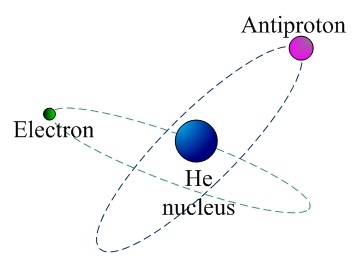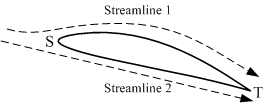Deprecated: Function create_function() is deprecated in /hermes/bosnacweb09/bosnacweb09ao/b2085/d5.hiro/public_html/PHP/b2evolution/inc/_core/_url.funcs.php on line 817
Deprecated: Function create_function() is deprecated in /hermes/bosnacweb09/bosnacweb09ao/b2085/d5.hiro/public_html/PHP/b2evolution/inc/_core/_url.funcs.php on line 818
A strange helium is created, but it really works!
November 22nd, 2016
Deprecated: Array and string offset access syntax with curly braces is deprecated in /hermes/bosnacweb09/bosnacweb09ao/b2085/d5.hiro/public_html/PHP/b2evolution/plugins/_auto_p.plugin.php on line 502
Deprecated: Array and string offset access syntax with curly braces is deprecated in /hermes/bosnacweb09/bosnacweb09ao/b2085/d5.hiro/public_html/PHP/b2evolution/plugins/_auto_p.plugin.php on line 500
Deprecated: Array and string offset access syntax with curly braces is deprecated in /hermes/bosnacweb09/bosnacweb09ao/b2085/d5.hiro/public_html/PHP/b2evolution/plugins/_texturize.plugin.php on line 116
Title:
"Buffer-gas cooling of antiprotonic helium to 1.5 to 1.7 K, and antiproton-to–electron mass ratio, Science 04 Nov 2016: Vol. 354, Issue 6312, pp. 610-614"
Summary:
From this experiment, one can show that the mass ratio between antiproton and electron is determined as precise as one determined by a proton-electron experiment.
This is situated by using helium, but one electron is replaced by an antiproton. The antiproton is kept away from the proton in the nucleus because the antiproton is excited as Rydberg state.
Cooling the atom to 1.5 and 1,7 kelvins played a crucial role for this precise experiment.
Deprecated: Function create_function() is deprecated in /hermes/bosnacweb09/bosnacweb09ao/b2085/d5.hiro/public_html/PHP/b2evolution/inc/_core/_url.funcs.php on line 817
Deprecated: Function create_function() is deprecated in /hermes/bosnacweb09/bosnacweb09ao/b2085/d5.hiro/public_html/PHP/b2evolution/inc/_core/_url.funcs.php on line 818
Does an airplane fly without Bernoulli’s equation?
January 18th, 2016
Title:
“How do wings work?”, Holger Babinsky, Physics Education Vol. 38 p 497-503, 2003
Introduction:
This paper clarifies how wings work for general levitation. It also shows that the typical explanation with Bernoulli’s equation is misleading. The keys are following: The curved surface of a wing and the angle of attack play a critical role for levitation. It is not necessary to use different distances of the upper and lower surfaces of an aerofoil to expound the lift.
Summary:
The typical explanation of how an airplane is lifted is: The upper and lower streamlines get together at the tailing edge simultaneously although the upper surface has more distance. Therefore, the upper stream is faster than lower. From Bernoulli’s equation, the faster the stream gets, the lower the pressure becomes. The lower region has higher pressure; thus, the lifting force works upward on the aerofoil. This has been believed as the right explanation; however, it turns out to be fallacy.
In fact, the typical explanation with Bernoulli’s theorem cannot show how aircraft manage to fly upside down. From the simulation and experiment, several factors are proven:
- Even though the upper and lower surfaces have the same length, the pressure difference can be created to levitate.
- When lift is generated, the upper streamline reaches actually faster than lower one. Namely, they do NOT arrive at the tailing edge at the same time.
- A curved surface, however, creates pressure gradients (differences) in terms of stream lines for the lift.
- The thickness of aerofoil does not influence the flow pattern of streamlines, but some specific shape, such as bird’s wings, could create more effective pressure gradients for the levitation.
In conclusion, the correct explanation is given as follows: A curved aerofoil creates pressure gradients along with the streamlines. In addition, changing the angle of attack alters the pressure gradients around the aerofoil to control the lift points, up or down. (It could make a stalled flow.)
Deprecated: Function create_function() is deprecated in /hermes/bosnacweb09/bosnacweb09ao/b2085/d5.hiro/public_html/PHP/b2evolution/inc/_core/_url.funcs.php on line 817
Deprecated: Function create_function() is deprecated in /hermes/bosnacweb09/bosnacweb09ao/b2085/d5.hiro/public_html/PHP/b2evolution/inc/_core/_url.funcs.php on line 818
Physics classes and gender-based science anxiety
January 30th, 2013
Title:
"Does Physics Teaching Affect Gender-Based Science Anxiety?", M. K. Udo, G. P Ramsey, S. Reynolds-Alpert, and J. V. Mallow, Journal of Science Education and Technology, Vol. 10 No. 3, 2001
Purposes:
This study is to find the factors contributing to anxiety as for a science subject and to investigate influences toward anxiety with semester courses. Then, the possible solutions are discussed to reduce such anxiety.
History:
Quite a few pieces of research have shown that female students are under-represented in the fields of mathematics, physics, and physics-based engineering. On the other hand, a specific anxiety called science anxirty seemed to be a factor for the anxiety for female students. Some research showed that science anxiety and the gender differences begin as early as nine years old. In a general sense, American Association of Physics Teachers noticed students' lack of confidence toward physics classes and offerred a workshop. This research goes to more in-depth to identify the factors of anxiety in terms of science and nonscience anxiety, majors, genders, and so called acute anxiety, which is an expression of "much" and very much" for their anxiety.
Mthod:
The science anxiety questionnaire are taken in all range of physics classes, such as conceptual physics, algebra-based physics, calculus-based physics, and astronomy.
Discussion:
Female students' anxiety is significantly different from male students'. With interactive teaching, nonscience ("trait") anxiety can be largely reduced and acute science anxiety was also improved. Women likely persist in keeping class to the end of semester, but this has more profound insight. Women tend not to drop when the population of female students is mojority. The gender of the teacher affects the anxiety toward students. The same gender tend to ease anxiety.
Deprecated: Function create_function() is deprecated in /hermes/bosnacweb09/bosnacweb09ao/b2085/d5.hiro/public_html/PHP/b2evolution/inc/_core/_url.funcs.php on line 817
Deprecated: Function create_function() is deprecated in /hermes/bosnacweb09/bosnacweb09ao/b2085/d5.hiro/public_html/PHP/b2evolution/inc/_core/_url.funcs.php on line 818
Children's motivation toward science classroom
January 27th, 2013
The reviewed article:
Motivational Patterns Observed in Sixth-Grade Science Classroom, by Okhee Lee and Jere Brophy
Journal of Research in Science Teaching, Vol. 33, No. 3 PP. 303-318 (1996)
Purposes of this article:
To emphasize the value of distinguishing motivation to learn from intrinsic motivation, and of distinguishing general motivational traits from situation-specific motivational states
To value the importance of considering subject-matter content in classroom motivation.
Methods for this study:
The topic is kinetic molecular theory. The curriculum is based on a conceptual change approach in science, which is stimulate students' conceptions and misconceptions. The specific contents are: the nature of matter; three states of matter; thermal expansion; dissolving; melting and freezing; boiling and evaporation, etc. Teachers are asked to encourage students to apply the knowledge they obtaind to explaining other daily phenomena. The class is taught by an interactive way with hands-on experiments, etc. Otherwise, the class is conducted in normal procedure, such as quizzes, reports and activity book. Data are collected and analyzed by two people. They also check the consistency of the data through the process. The study is measured by three motivational levels, which are "behavioral engagement", "cognitive engagement", and "intrinsic motivation." The behavioral engagement is the first step attention. The cognitive engagement is more involved behavior when facing confusion or difficulty to the topic. The intrinsic motivation is enthusiasm in learning. The data from interviews and observations are compiled in terms of the levels of task engagement.
Conclusions and Discussions:
This article discussed the students' behaviors and effective methods to improve their motivation to learn science. There are various methods to be advocated to improve the situation; however, the key is to recognize that there are many of the factors to see students' motivational levels. This also indicates that the multi-aspects of classroom, such as teachers, curriculum, methods, academic tasks, and subject-matter contents, can be the factors to observe. As their conclusion, "Thus, instructional programs or teachers address their intervention strategies more specifically in response to the characteristics of individual students."


